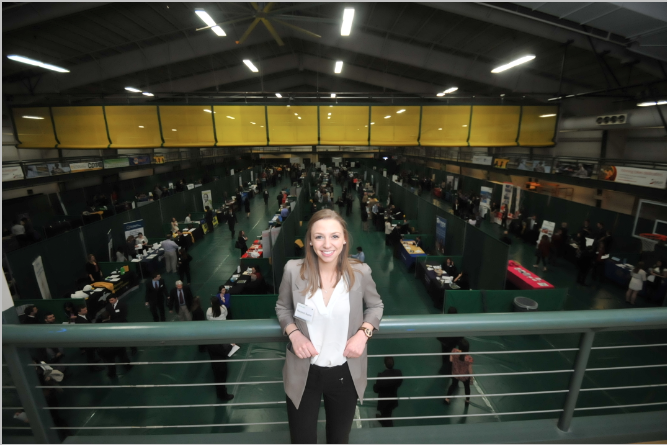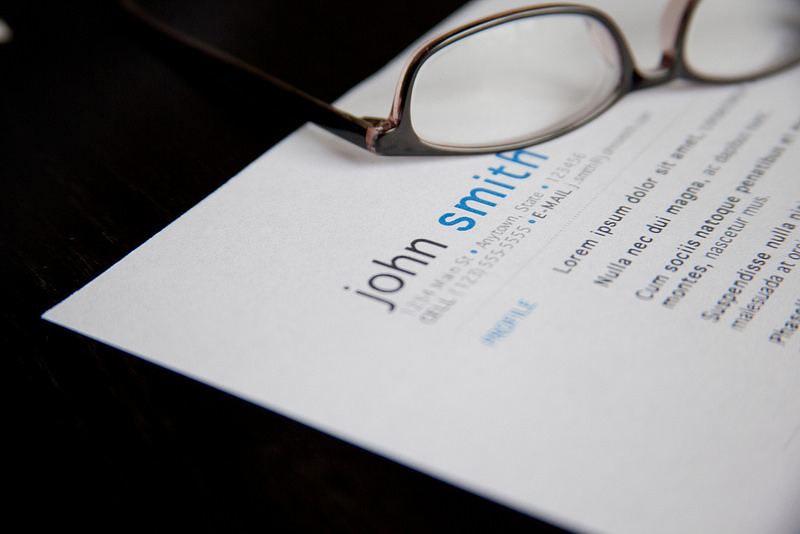Walking into the MAAC Gymnasium with my nude flats and straight leg dress pants I began to panic. Looking forward I could see the three rows of back-to-back businesses, corporations, news stations, and graduate schools. As I clipped on my nametag I took a deep breath and began to walk forward into the great abyss of the career fair.
Resumes in hand I approached a familiar company by whom I am already employed as a hostess at one of their local bistros. I began to converse with one of the representatives of Mazzone Hospitality. Unsure of what it was exactly that I wanted to find out or wanted him to know about me, I stood there in front of him, my mind running with things to say.
I remembered how at a networking event I had once attended I learned how to articulate a so-called “elevator speech.” A quick speech introducing yourself, your major, your estimated year of graduation, any experiences you have had, let it be an internship or volunteer work in your field, and perhaps what you plan to do with your degree in a non-begging-them-to-give-you-a-job way.
Already having known the company and understanding their beliefs and expectations, I had more to talk about with the representatives than I had realized. I was lucky to have this connection, but it would help next year to research some of the companies/universities before attending the fair to show my interest and have questions lined up.
As I walked around talking to company after company I became more and more comfortable. As a liberal arts student I felt well prepared for the fair. While it is easily assumed that the fair is much more fitting for business students, many companies are looking for students who have learned how to think creatively and critically at the same time, students who can properly articulate themselves and have effective communication skills; all of which a liberal arts student is proficient in. I found that a lot of the positions that companies talked about were managerial or marketing, but a liberal arts student is just as much suited for that position as a business student.
I walked out of the career fair learning three main things:
- HAVE YOUR RESUME PREPARED! Go to the career center events to get your resume critiqued. Drop your resume off at the career center to have them edit it. Make sure it is flawless and really represents who you are and your accomplishments. If you pass out your resume to companies you showed interest in, it could be used for future reference!
- RESEARCH BEFORE! Look into the companies. Find out what companies are coming to the fair, look into a handful of them, find out what their company stands for and if you are interested in it, think of some beneficial questions you could ask them. (Easiest question: What is your favorite part about working for this company?)
- GO BEFORE SENIOR YEAR! Even if you are a freshman or sophomore still figuring out what to do with your life, go to the career fair for the experience. Going one time will give you more confidence for the next year. I promise you will learn something each time you go. So go! You never know what you’ll find. Then, when senior year comes around and you’re looking for a job/internship for after college, you will be prepared and already know what to expect.


![Will Marlow Stage Fright [EXPLORE]](http://blab.siena.edu/wp-content/uploads/sites/255/2015/03/7350412202_30b0aba8f6_c.jpg)